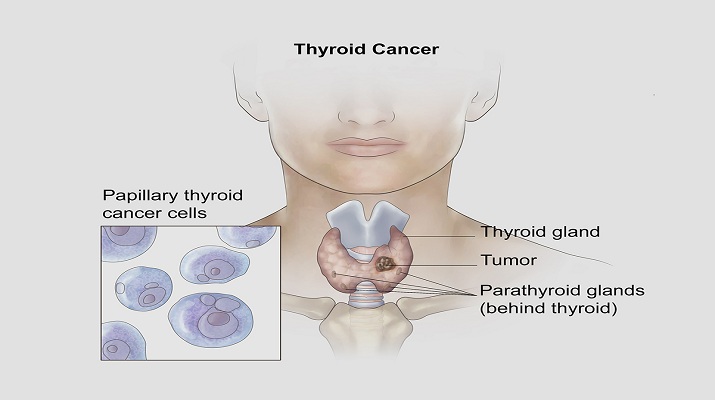- Mon - Fri 09:00 - 7:00
- Call Us: 9687693623
- aditya.joshipura@gmail.com

Thyroid Cancer develops in the thyroid, a small butterfly-shaped gland at the base of your neck. This gland produces hormones that regulate your metabolism (how your body uses energy). Thyroid hormones also help control your body temperature, blood pressure and heart rate. Thyroid cancer, a type of endocrine cancer, is generally highly treatable with an excellent cure rate.
Thyroid cancer might not cause any symptoms at first. But as it grows, it can cause pain and swelling in your neck.
The papillary is the most common type of thyroid cancer. Out of 10 about 6 of them are diagnosed by thyroid cancer. It is the most common type of disease among women and it mostly affects the younger people and sometimes it may spread to the neck and lymph of the body. Mostly it tends to grow slowly and if it is detected in the earlier stage it can be treated.
It is most often diagnosed in young and middle aged people. About 15 percent of thyroid cancers are this type. This type of cancer may spread to the other part such as bone and lymph.
There may be a connection with this type of cancer and inherited genetic syndromes. These syndromes may, in fact, include tumors in other glands as well. It arises from the thyroid's C cells. An elevated calcitonin level of blood can indicate this disease's presence at the early stages.
This type is even less common. It is also very, aggressive and difficult to treat. This particular type of thyroid cancer occurs in individuals over the age of 60.
Thyroid lymphoma is even rarer. It starts in the immune system cells of the thyroid gland. This version of the cancer usually happens in persons over the age of 70.
Treatment options may include surgery to remove the thyroid gland and nearby lymph nodes, chemotherapy, radiation therapy and hormone therapy.